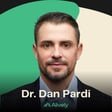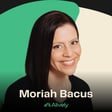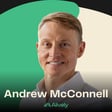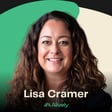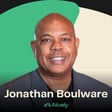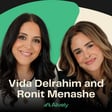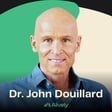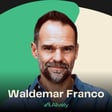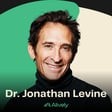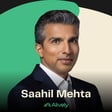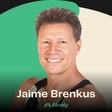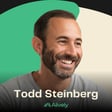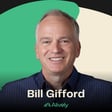
Embracing Holistic Healing with Molly van der Griend - E46
What if healing means more than just treating symptoms? What if real wellness means addressing the whole person - mind, body and spirit?
In this week’s episode, we hear from someone who faced a chronic illness diagnosis and after years of conventional treatments, made the decision to expand their healing approach by incorporating holistic medicine. Their story reveals how integrating complementary therapies alongside traditional medical care created a more comprehensive path to wellness.
Molly van der Griend is a health and wellness entrepreneur. Her own experience with chronic illness and holistic healing has shaped her approach, blending traditional and alternative medicine insights, which she now shares with a wider audience. Molly emphasizes the importance of mindset, agency, and personal wellness, advocating for a balanced and integrated approach to health. She is also the president and co-designer of Walker & Wade, a sustainable resort wear brand. Molly’s commitment to authenticity and personal growth resonates with those seeking to optimize their lives through holistic practices.
“Whatever you want in life, you have the control over your mind and over your thoughts and over your actions” - Molly van der Griend
In this episode you will learn:
- Molly's transformative journey from being diagnosed with ulcerative colitis at 13 to becoming a health and wellness role model.
- The power of mindset and how Molly learned to control her thoughts and actions even during extreme physical challenges.
- The role of alternative medicine and holistic approaches in Molly's healing process, including meeting with a shaman and adopting practices from medical medium protocols.
- The importance of making an intentional choice in one’s daily mindset, as instilled in Molly by her mother through the game of "choices."
- The significance of sleep, nutrition, and routines that Molly incorporates into her life, including the impact of supplements and a balanced diet tailored to her health needs.
- How social connection, community building, and helping others realize their dreams have become an integral part of Molly's purpose-driven life.
Resources
- Connect with Molly on Instagram: https://www.instagram.com/mollyxjane
- Shop Molly’s resort wear brand, Walker & Wade: https://www.walkerandwade.com/
- Shop all the products Molly mentions in this episode: https://alively.com/products/molly-van-der-griend
This podcast was produced by the team at Zapods Podcast Agency:
https://www.zapods.com
Find the products, practices, and routines discussed on the Alively website:
https://alively.com/

